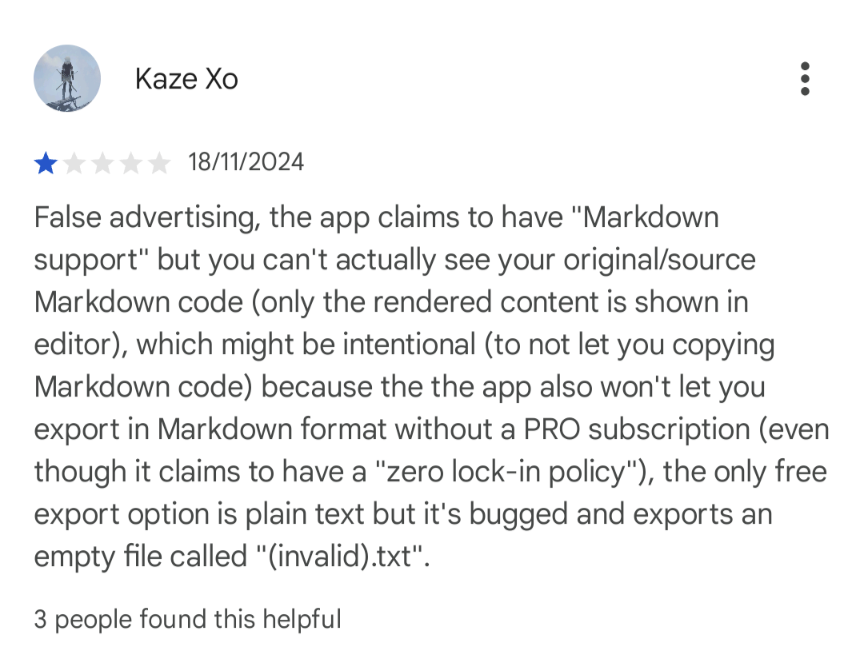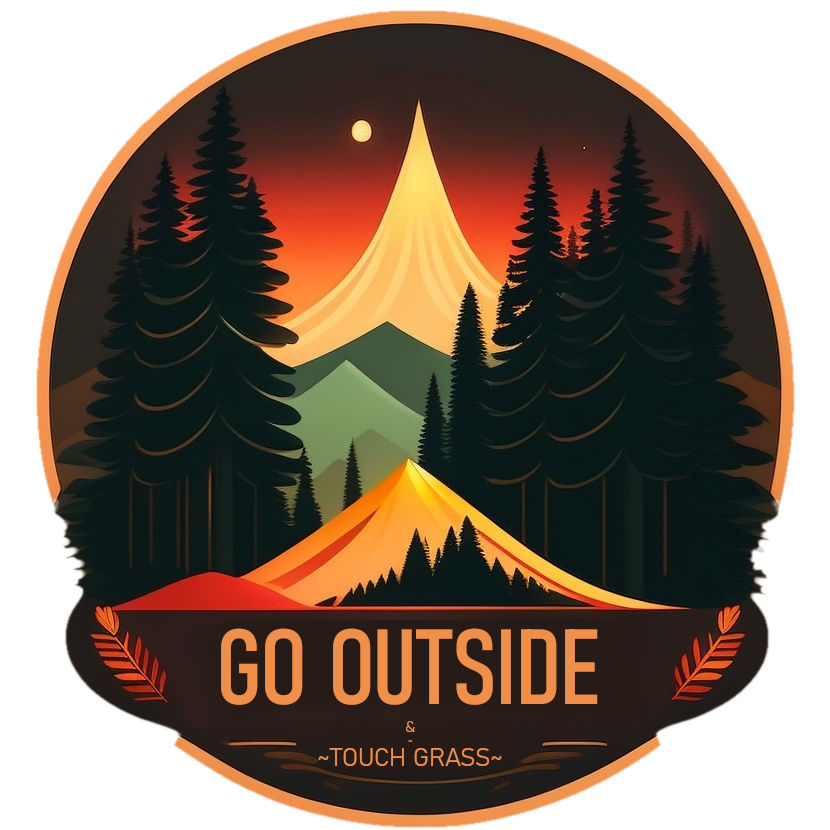I was using Obsidian for a while, but actually switched when I found an awesome open source alternative, SilverBullet. The best comparison would be “Obsidian but for tinkerers/hackers”.
Data is stored plaintext the same as obsidian - I actually just copy pasted my vault and it worked with exception of wikilinks being absolute paths only - and haven’t looked back
The only downside is that its in early stages of development, but definitely usable
I jumped over to logseq. It takes some getting used to, but overall logseq is working fine overall.
I like Silverbullet, but I could never get the file tree to work well. Any tips? Or is that not a feature you use?
I have an “index” page where I link important pages and files. When I want to move them I rename them. If I do bulk data changes I SSH to my server and move the files in an old fashioned way. Personally I have not tried the filetree plugin, since I did not have the need for it - and probably the author of the project aswell.
Read whole page. Not sure what Obsidian even is?
Its a staggeringly powerful app. Utilizing the markdown format and the Dataview plugin to create queries with metadata in your notes allows you to build INSANE knowledge management systems.
Example of some set ups here: https://forum.obsidian.md/t/14-example-vaults-from-around-the-web-kepano-nick-milo-the-sweet-setup-and-more/81788
Note-taking app. Each note is a markdown file, so you can add formatting.
A very successful one with a large extension ecosystem to boot.
What sort of extensions would one use for a note taking app? What sort of notes to you take with it?
The Dataview plugin is the most critical one. You can create queries with the metadata in your notes (YAML frontmatter and # hashtags). If that sounded like a bunch of non-sense I highly encourage you to dig into it, because I had no idea what those words meant either but it took my note taking to a new level. I think of my Obsidian vault as my second brain.
Below are some cool examples of vaults that you can click through. Also note that because the obsidian pages are in markdown format you can use the Jekyll engine to directly turn them into web pages without any coding (this is how GitHub Pages works)
If you know how to do a bit of coding (or use ChatGPT) you can incorporate APIs from other apps in your obsidian vault. Maybe you want to make a fancy home page that displays all your tasks from ToDoist, alongside the RSS feeds to your favorite podcasts and YouTube channels. Maybe you are tracking your habits and using DataView to compile all relevant instances of #habit tags into one calendar for a birds eye view.
There’s lots of types, think even stuff like d&d monster blocks, or custom date ones
I use mermaid and git extensions personally.
Lots of AI bros add LLMs to it but that’s not my cup of tea
It’s like trillium, but not open source Here is an enthusiastic person talking about the state of the art of one year ago for 20 minute. https://youtu.be/XRpHIa-2XCE
What is a Trillium?
It’s like a Bilium, but with one more
What is Billum?
It’s like Millium, but one more.
I don’t necessarily like a few takes in the comments here.
Vibes wise the Obsidian team seems to be great and they don’t seem to have shown any reason why I should distrust them. I love FOSS but gifting others my work doesn’t put food on my table, so in that sense they need to have a lucrative business model which they seem to have established.
I could use SyncThing, Git or other solutions to do synchronisation between my devices but I choose to buy their Sync offer, since I want to support them (they also have EU servers, which need to be GDPR compliant by law afaik).
The closest comparison I could make is NextCloud. NextCloud open sources their software, but they sell convenience. Sure, you could self host it, but paying them to do so for you may be more attractive. In comparison Obsidian is not really complicated to set up or maintain. It’s literally just a MD-editor. So the only convenient thing to sell is synchronisation if you don’t want to put a price tag on the software.
If they open source all their code, some tech wizard will implement a self hosted obsidian sync server with the same convenience as theirs in a day, and the company will lose their revenue stream.
We’ve all been burned by tech bros in one way or another, but I think it’s ok for people to profit off of their IP. And they seem to be doing so with a positive vision. Feel free to let me eat my words if they ever go rogue, but that’s my 2 cents.
Someone develops logseq which is completely foss and like obsidian. Now I can choose to donate to FOSS or buy closed source. How do you decide?
We just need to establish paying for open source software more.
Thanks for the rare, rational comment regarding Obsidian. Many people here seem to think releasing software as closed source automatically means you have something to hide; seemingly forgetting we live in a capitalist system in which you must constantly sell your services to survive. (I am saying this as someone who adores FOSS and donates to most of my homelab software on a regular basis).
I think a more productive way to look at is: is the closed source dev friendly (or at least non-hostile) to the open source community? In the case of Obsidian, they haven’t done anything egregious, and regularly contribute to open source plugins. Furthermore, the notes are stored as markdown files. This gives the user strong resistance against potential enshittification, so even if they did go rogue you can just move to some other text editor lol. Granted, you would miss out on plugins but otherwise that’s a good reason to keep your plugin usage light and plan your Obsidian vault accordingly.
If they open source all their code, some tech wizard will implement a self hosted obsidian sync server with the same convenience as theirs in a day, and the company will lose their revenue stream
Obsidian is storing everything as plaintext files. Those convenient selfhosted sync solutions have been out there for years.
It’s not just about syncing files. It’s also the fact I can edit stuff on my tablet and see the changes in almost real time on my laptop with Obsidian Sync. I believe most other solutions wouldn’t play nice with such a workflow.
It is a really good app. But was a pain in the ass to keep the archive in sync using multiple different platforms without paying for their sync addon in my experience. You can roll your own sync with stuff like Syncthing, cloud storage, etc. But the archive had a bad habit of seemingly finding ways to get out of sync.
Did you try any of the sync extensions?
The biggest issue I had was with folder permissions on Android. I also ended up paying for the sync functionality and have zero regrets.
Take a look a SyncThing! It’s a free FOSS app for syncing files and is available on all devices, and it’s all self hosted. I initially used it for Obsidian syncing, but it’s proved incredibly useful beyond that
They mentioned SyncThing. 👍
Excellent news for myself. I’ve wanted to use this at work but it’s hard enough to convince people to use it without asking for money.
I just don’t see the point of obsidian et al.
Just use a directory structure and save markdown files in it.
There are many apps that are great editors for this structure on every platform. IDK exactly what obsidian does but many editors have zettelkasten (fancy cross links) functionality, just no fancy graph.
Ghostty + helix is the sexxy RN.
There are many apps that are great editors for this structure on every platform
And Obsidian is one of those apps 🤦 It’s has equal amount of “point” to all the other editors you think are somehow more valid - it’s just another editor.
the extensions mostly
Good point, the thing is… if you do have MarkDown in a directory, as suggested here, then your CLI tools become your extensions. One can start with git and voila, version tracked. One can used a Web server e.g. Apache or nginx, and voila, accessible anywhere on the network, possibly on the Internet (via e.g. Grok or TailScale). That also includes any programming language, e.g. invoking a Python script on said files. Might not sound like much but it’s a LOT.
So… I’d argue maybe not necessarily extensions themselves but the curation of extensions, namely their discoverability because they are all in one neat spot, with comments from users, etc whereas CLI commands are… all over.
Edit: I’d be curious about how many downvoters in this case have been using such solutions and for how long. FWIW I’ve been actively using and maintaining my PIM since 2008.
To answer your other question, actively using and maintaining my PIM since 2009.
That assumes the person using obsidian is a software dev or a sysadmin. Most users aren’t going to want the extra hassle, or they might be unable to do these things.
IMHO note taking systems are precisely about empowerment. The whole point is to learn… so even if they are not a dev or sysadmin, they can try and scaffold their knowledge, initially typing commands they don’t understand, copy/pasting from the Web, then discover they can write their own, add that knowledge to their system, etc. I’d argue for most people that might be at least as valuable as their own content.
TL;DR: let’s not infantilize fictional users. Having the option to do more, for those who do want to, is extremely valuable.
Source: I’ve seen nurses with no IT training installing drivers in the CLI for their WiFi card, no help from me. IT is cool but it’s nothing magical either, people CAN learn if they want to.
It’s interesting that a closed-source app has good reputation among FOSS enthusiasts. Surely they are not a Microsoft or Apple, but still who controls your computer, you or them?
It stores your data in plaintext, and simply uses the program to parse special formatting characters. There are no attempts at obfuscation or encryption, and it doesn’t lock you into a walled garden that refuses to play nice with other programs. The program itself is closed-source, but anyone could write an open source version to parse the same info… There just hasn’t been a good reason to do so. Even if Obsidian as a company and program ceases to exist overnight, your data is still safe on your machine and can be read by anyone who cares enough to dig into the file. Hell, you can even open it as the plaintext file and dig through it manually.
There in fact are FOSS alternatives like Joplin. Personally, I actually switched from Joplin to Obsidian due to a larger community (and therefore community-driven plugins) and overall a more polished UX. That being said, I have the security of switching back if Obsidian ever becomes evil or unusable.
Another aspect is that the entire source code is technically viewable (partially obfuscated) since it’s a web app. Having written plugins for Obsidian, you’re very much interacting with the source code itself. Feels like open source with extra steps and I wish one day they will finally make the switch to true FOSS.
That’s not so true of the Android app. I do have access to bytecode but changing bytecode to bring feature enhancements is not for the faint of heart.
And storage in their current android app is a major privacy breach.
You’re right, I wasn’t thinking about the android app when writing this.
I switched from Joplin because Obisidian data is just markdown and I can edit and generate it with external apps
Joplin had a custom database system (at the time)
I just cant wrap my head around why they’re willing to go so far to gain good will from people by having such a generous free tier, but somehow licensing the code under a FOSS license is out of the question??
Why not just go all the way and make sure everyone who cares about reading the souce could also give you free contributions?
I’ve been really enjoying trilium as an open source alternative but fair warning it’s not as polished as Obsidian
This post was how I learned about Obsidian.
For those of you that love it, how do you use it daily?
Daily notes. I have a template that prompts me to fill out a number details I might otherwise forget.
A wiki of people that helps me remember details about people I meet or have worked with. Makes it much easier to keep in touch and to remember important dates in their lives.
Sortable todo lists, with due date and urgency information. I can add to the lists directly from any other note using a Dataview formula with the Tasks extension.
Career plans. Project plans. Gardening plans. Recipes (there’s an awesome extension that imports recipes from the web).
Any random writing I might want to do, from short stories to rough drafts of letters to stream of consciousness mind spew that I want to review later.
I use the Auto Note Mover and Dataview extensions, along with backlinks and tags, to keep all of my notes organized automatically. I use the Linter extension to make sure things are formatted nicely. When I started using Obsidian, I used the Importer extension yo easily pull in all of my existing notes and lists from Evernote and Google Keep.
Honestly, that barely scratches the surface.
Daily journal Task list / project management Note taking Mind mapping Resource archive
I’ve got my vault automated pretty well at this point. I honestly don’t know what I would do without it.
For those of you that are wondering, everything is markdown independent, all of my plugins address UI or vault automation processes that leave all of my information entirely portable.
I fucking LOVE obsidian, one of my most used pieces of software.
I have two note vaults.
One is my personal “everything” not vault, Anything I might need to write down goes there. No random sticky notes, or half used notebooks for me. Game notes, such as what equipment I’m looking for, or solutions to puzzles I’ll forget before I can use the information. More practically useful notes like conversion charts to use imperial measurements in blender and godot. Names of people I need to remember and what their handles are on social media, because most platforms don’t help you with that. Everything can be interconnected, so some notes are just indexes of other notes.
More impressive is my lore wiki. There is a book series that I will never write, and these notes document the setting. Characters, events, locations, other authors who have helped over the years. Anything that is a proper noun or is otherwise special to the setting is a link to a note of that name.
Obsidian also has “graph view” which visually organizes notes so that things that are connected are physically closer together. I just wish I could give these notes icons on the graph view so that they’d be more visually distinct.
here’s a bunch of possible applications:
- simple note taking. like notepad except you have your notes at a place where you can search through them and even link one from another.
- second brain. you can watch a video about it but basically to organize your thoughts, record things you learn, make connections between things to have a digital brain you can search or browse through.
- work or school. notes, to do lists, reminders, links to sources, etc all in one place with references via links
- journal. pretty straightforward, but you can imagine things you could do if you could link from your journal entry to a website, or another entry, or something from your movie collection.
- database. eg maybe you have a movie collection and want to document all the details, including which ones you watched, which ones you liked, and what you think about them. you can have a file for each movie but also files for directors, actors, etc that you can link to and from, in which you have info on those, including images, tags for easy search.
so you watched a movie and wonder what other movies you own have the same starring actor: search movie, click link to the star page, check backlinks.
obviously not the best use case because imdb exists but this is personal and could be extrapolated to any collection you have, maybe even all of them. why not have the movie adaptation link to the original book?
TLDR
you can think about it like: imagine if you could make a bunch of wiki pages. the formatting isn’t quite as nice but essentially that’s what you’re doing. a bunch of pages with text, images, links and tags, that you can browse through. what would you use it for?
I use Obsidian as a tool to help my shitty memory.
I want to have one single place where I can go search for a thing I know I saw somewhere but can’t remember where or what it was exactly
“Did I watch movie X” -> Obsidian -> Watchlist -> Movies and there it’ll be.
Same for tv-series, anime, books, games. Yes there are services that do it like Trakt, Imdb, Letterboxd, TVMaze and god knows how many for games. They all get enshittified eventually requiring you to pay for basic functionality (looking at you trakt…)
I’m building a tool for getting my data out from all those services into Obsidian markdown format, maybe It’ll get finished some day :D (IMDB and Goodreads work, but you need to do a manual csv export)
“How did I install that finicky piece of software last time” -> Obsidian, I wrote something down because I knew I couldn’t remember it. Then I’ll improve the guide + refresh with new data.
Now I have a pretty good step-by step guide on how to set up a computer, no matter the OS, just how I like it - all in Obsidian. Mostly just commands I copy-paste and some manual steps that I can’t be arsed to automate.
Same with my daily notes, I just write down what I did maybe with some tags so I can find them when I start wondering when did I visit X or put up the curtains in the bedroom.
How did I install that finicky piece of software last time
This. So much this. Every time I start a new project I’m so glad to have these notes to refer back to.
I use it to track everything…
Quick notes knowledgebase Follow up (personal and work)
The great thing about Obsidian is how flexible it is. The bad thing about Obsidian is how flexible it is… 😀
I have seen may people comment, or outright leave, Obsidian because because there was too much to learn… or too many plugins to explore…
Personally, I only look for plugins if I need something specific. Don’t see the point of trying random plugins. Is like spending time finding solutions to a problem you may not have…
Also, I work on tech and many documents are in markdown. Obsidian makes it easier to read those. Specially the collapse / expand functionality is really great for exploring large docs… as long as the creators properly used sections (basically # for level 1, ## for level 2…and so on)
I wanted to go all in on Obsidian, but in the end I went with “Upnote” which has an easy UI and a lifetime price. (No monthly fees). It’s like a mix of Evernote and OneNote. The Slash commands are so cool too.
It’s a different thing. What Obsidian and Logseq offer is plain-text markdown files in folders on your disk. Upnote and most of the other alternatives mentioned in this post store their data in a database.
Different thing altogether. Just depends what you’re looking for.
I like the Markdown-based approach but Sync is way to expensive for my use-case…
$4 a month?
There are sync plugins that use git, s3, WebDAV etc. Or you can use Dropbox or google drive or iCloud or sync thing.
It’s just a bunch of markdown files and unless you edit with multiple devices at the same time it’s easy to sync
Saw this, super cool. Hope they make tons of money with Obsidian Sync
They do, because they don’t offer others easy sync options in the iOS app (only iCloud or Sync, no webDAV, no onedrive, no googledrive, etc. )
You mean all the other methods that exist that can be implemented with ease? My friends have their notes on iCloud to sync, I amuse syncthing, others use GitHub. There is a lot of choice, they just offer an easy alternative way to do it
You can choose to look at it like that, but for me, it was too big of a hassle and switched to appFlowy
Use Logseq. It’s amazing IMO. And OSS
It’s a very, very different approach having everything as a bullet point though.
This is true of Markdown though, no? Which Obsidian runs?
Markdown has many more elements than bullet points
I couldn’t get work to pay for it so I found a better, cheaper alternative, Notesnook. It’s open source (client and sync server), you can publish notes, and it’s end-to-end encrypted.
It says it’s free, but then there’s a pricing and plans page?

A lot of alarm bells ringing for me about that app.
Notesnook is free. It is developed under gpl https://github.com/streetwriters/notesnook
i use notally for quick notes and reminders but i needed another organizer for longer text
i started trying notesnook after reading your comment and it looks like what i needed. I really like its customizability. I wish there was an option to choose fonts from file.
The only problem is that constant login reminder. Is there a way to get rid of it?
The community plugin “Google Drive Sync” is free, open source, and lets you (clunkily but effectively) bypass Obsydian Sync. One less server to manage.
Which is a great workaround but then all your private notes are on Google’s servers, accessible to anyone with enough admin rights on their end. All apps should be end-to-end encrypted going into 2025. There’s no reason security AND privacy shouldn’t be included.
Just use Joplin. It checks all those boxes, it’s only flaw is being an electron application.
I use it too, but it doesn’t have something like canvas. You have to write them in Mermaid markdown like a caveman.
Now that it’s free, are its users the product?
Nothing else is changing. No account required, no ads, no tracking, no strings attached. Your data remains fully in your control, stored locally in plain text Markdown files. All features are available to you for free without limits.
“…until we have a large enough userbase to start monetizing and enshittifying…”
They have a plenty large enough user base and have not done so. You’re literally commenting this on a post of them doing the exact opposite. The fear mongering is insane.
It was nothing personal, more of an off-handed commentary on how things usually end up going after 20 years of seeing literally every site/service I’ve used and most of the companies I once considered “the good ones” eventually get shittier in some way when the business side puts on the squeeze.
The one exception I can think of is Wikipedia.
But I don’t have any reason to think badly of these folks, their current owners seem to have their hearts in the right place and indeed have made decisions that avoid lockin and assure users, and I hope they are another Wikipedia that will endure the tides of enshittification.
But I will never again assume that such hopes will remain the reality, even in this case. This is a snapshot in time. Owners change, priorities change, pricing models change, file formats change, common sense statements of basic decency like “don’t be evil” get rescinded, scrappy fun websites created by free-thinkers become tools of fascist oppression.
That doesn’t mean they don’t deserve your business and support currently. Just make sure your off-ramp options remain acceptable if things begin to change.
While that’s technically possible, it’s very difficult, and in my opinion, highly unlikely.
- All notes are stored in markdown, which is compatible with any other markdown-compatible app. It’s not just a note format, it’s a fire exit.
- Even the canvas files are now having an interoperable format created, with other industry-leading canvas style software, and that whole process was started by the Obsidian team voluntarily
- All plugins must be open-source unless explicitly and clearly stated, and such plugins are only listed on a case-by-case basis, which makes even additional plugin-specific functionality added to Obsidian easier to port over to other software if Obsidian ever does lock things down
- They don’t have VC investors, and have mentioned a few times that they won’t be accepting investment in the future, since they don’t exactly have very high costs. They’re explicitly anti “VCware.” Features like Sync that depend on their server hosting bill being paid are only used by paying users, and most users will never have to use Obsidian servers past downloading and updating the app, and installing a few plugins of a few megabytes in size. Costs aren’t likely to rise in any substantial way, and their team is small enough to make it profitable to operate at their existing scale.
- Actions like this are literally proactively recognizing that something wasn’t in line with their manifesto, and wasn’t beneficial for users, so they’re removing it. Companies planning to enshittify don’t usually remove enshittified/negative features they already have before re-enshittifying. They want you used to the enshittification from the start.
















